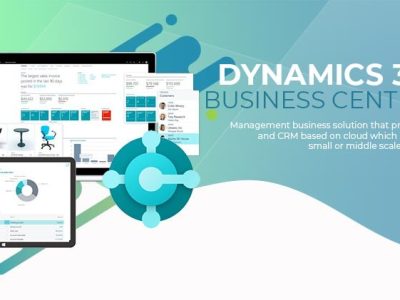Introduction
Manufacturing is a high-stakes game—tight deadlines, complex supply chains, and razor-thin margins mean there’s no room for error. To stay ahead, manufacturers need an ERP (Enterprise Resource Planning) system that’s not just a tool but a strategic partner. Two heavyweights dominate the conversation: Dynamics 365 from Microsoft and Oracle’s suite, including NetSuite and Oracle Cloud ERP. Both promise to streamline operations, but which one truly delivers for manufacturers?
In this Dynamics 365 vs. Oracle: Manufacturing Edition showdown, we’ll dig into how these platforms stack up, with a spotlight on why Dynamics 365 is increasingly the go-to choice for production floors big and small. From shop floor control to real-time analytics, Dynamics 365 offers manufacturers a blend of flexibility, integration, and affordability that’s tough to beat. Oracle has its strengths, no doubt—but let’s explore why Dynamics 365 might just be the edge your manufacturing business needs in 2025. Ready to see which ERP reigns supreme? Let’s get started.
What Makes Dynamics 365 a Manufacturing Powerhouse?
Dynamics 365 isn’t a single product—it’s a family of business applications, with Dynamics 365 Business Central and Dynamics 365 Finance & Supply Chain Management (F&SCM) leading the charge for manufacturers. Built on Microsoft’s cloud-first vision, Dynamics 365 combines ERP and CRM into a unified platform, tailored to tackle manufacturing complexities head-on.
For manufacturers, Dynamics 365 Business Central shines for small to mid-sized businesses (SMBs), while F&SCM targets larger, global operations. Both share a common thread: deep integration with Microsoft tools like Power BI and Azure, plus manufacturing-specific features that streamline production, inventory, and financials. Think of Dynamics 365 as your all-in-one command center—connecting the dots from raw materials to finished goods.
Key Features of Dynamics 365 for Manufacturers
When it comes to manufacturing, features matter. Here’s how Dynamics 365 delivers.
Production Planning Done Right
Dynamics 365 Business Central offers a robust manufacturing module with production orders, bills of materials (BOMs), and material requirements planning (MRP). Need to juggle multiple production runs? Its capacity planning and finite scheduling keep your shop floor humming. For larger firms, Dynamics 365 F&SCM takes it up a notch with advanced shop floor execution and demand forecasting—perfect for complex, multi-site production.
Inventory Control That Works
Overstocked warehouses and stockouts are profit killers. Dynamics 365 gives you real-time inventory visibility—raw materials, work-in-progress (WIP), and finished goods—all tracked seamlessly. Business Central’s MRP ensures you order only what you need, while F&SCM’s supply chain tools optimize stock across global plants.
Financial Clarity for Cost Control
Manufacturing profitability hinges on cost management. Dynamics 365 integrates financials with production, offering real-time budgeting, cost tracking, and compliance reporting. Whether it’s tracking labor costs or material expenses, Dynamics 365 keeps your ledger tight and transparent.
Power of Microsoft Integrations
What sets Dynamics 365 apart? Its native ties to Office 365, Power BI, and Azure. Pull production data into Excel, visualize bottlenecks with Power BI dashboards, or leverage Azure AI for predictive maintenance—all without leaving the ecosystem. For manufacturers, this means less toggling between tools and more focus on making.
-
- Top Dynamics 365 Features:
-
- Automated production scheduling
-
- Real-time inventory tracking
-
- Advanced financial reporting
-
- AI-driven insights
-
- Top Dynamics 365 Features:
Oracle’s Manufacturing Offerings: A Quick Look
Oracle brings two key players to the table: NetSuite and Oracle Cloud ERP. NetSuite, acquired by Oracle in 2016, targets SMBs with a unified cloud suite, while Oracle Cloud ERP aims at larger enterprises with deep functionality. Both offer manufacturing tools, but their approach differs from Dynamics 365.
NetSuite’s manufacturing strengths lie in lighter assembly and consumer goods, with features like BOMs, work orders, and basic MRP. Oracle Cloud ERP goes bigger, supporting complex discrete and process manufacturing with robust supply chain management. However, Oracle’s ecosystem leans heavily on its own stack, which can limit flexibility compared to Dynamics 365’s Microsoft synergy.
Dynamics 365 vs. Oracle: Head-to-Head for Manufacturers
Let’s break it down—how do Dynamics 365 and Oracle compare in the manufacturing arena?
Functionality: Depth Meets Breadth
Dynamics 365 excels with manufacturing-specific tools out of the box. Business Central’s Premium tier ($100/user/month) includes production planning, shop floor control, and MRP—ideal for SMBs. F&SCM adds advanced capabilities like mixed-mode manufacturing and global supply chain optimization, rivaling Oracle Cloud ERP’s depth. NetSuite covers basics well but often requires add-ons for advanced manufacturing needs, while Oracle Cloud ERP shines in heavy industry but can feel overbuilt for smaller shops.
Scalability: Growing Your Way
Manufacturers grow, and your ERP should too. Dynamics 365 scales effortlessly—Business Central suits startups and SMBs, with a smooth upgrade path to F&SCM for enterprise needs. Oracle NetSuite scales well for mid-market firms but can hit cost ceilings with add-ons. Oracle Cloud ERP is built for giants, though its complexity might overwhelm smaller manufacturers.
Cost: Value vs. Investment
Pricing is a big deal. Dynamics 365 Business Central starts at $70/user/month (Essentials) or $100 (Premium with manufacturing), with no hefty instance fees. F&SCM costs more but aligns with enterprise budgets. NetSuite’s base is ~$999/month plus $99/user, escalating with modules. Oracle Cloud ERP’s pricing (custom quotes) often skews higher, favoring deep-pocketed firms. Dynamics 365 wins on predictable, affordable value.
Integration: Ecosystem Edge
Here’s where Dynamics 365 pulls ahead. Its seamless Microsoft integrations—Office 365, Teams, Power BI—fit manufacturers already in that world. Oracle’s ecosystem (NetSuite’s SuiteCloud, Oracle Cloud’s APIs) is strong but less universal, often requiring custom work to sync with non-Oracle tools.
-
- Quick Comparison Table:
Aspect Dynamics 365 Oracle (NetSuite/Cloud ERP) Manufacturing Fit Broad, SMB to enterprise Light assembly to heavy industry Cost $70-$100+/user/month $999+/month + add-ons Scalability High, flexible tiers Good, module-dependent Integrations Microsoft ecosystem Oracle-centric
- Quick Comparison Table:
Why Dynamics 365 Stands Out for Manufacturing
While Oracle has its merits, Dynamics 365 steals the spotlight for manufacturers. Why? It’s the perfect balance of power and practicality. Business Central’s manufacturing module tackles SMB pain points—production delays, inventory chaos—without enterprise-level complexity. F&SCM steps up for global players, rivaling Oracle Cloud ERP’s depth with better usability.
Take a mid-sized manufacturer I’ve seen: they switched to Dynamics 365 Business Central and cut production planning time by 25% within six months, thanks to MRP and Power BI insights. Oracle’s offerings are solid, but Dynamics 365’s Microsoft backbone and lower entry cost make it a no-brainer for many.
Steps to Get Started with Dynamics 365
Convinced Dynamics 365 is your manufacturing match? Here’s how to kick things off.
Assess Your Needs
Map your workflows—production, inventory, financials. Dynamics 365’s tiers (Business Central or F&SCM) align with your scale and goals.
Partner Up
A Microsoft partner can customize Dynamics 365 for your shop floor—think BOM tweaks or supply chain setups. They’ll streamline implementation.
Test the Waters
Sign up for a Dynamics 365 trial. Create a production order, track inventory, run a cost report—see how it fits your reality.
Train and Launch
Train your team early—shop floor to finance—then go live with KPIs like reduced downtime in mind. Dynamics 365’s intuitive design speeds adoption.
Oracle’s Place in Manufacturing
Oracle isn’t out of the game. NetSuite suits light manufacturing (e.g., consumer goods) with its all-in-one simplicity, while Oracle Cloud ERP excels for massive, intricate operations—think aerospace or chemicals. But its higher costs and Oracle-centric integrations can be a hurdle compared to Dynamics 365’s flexibility.
Conclusion
In the Dynamics 365 vs. Oracle: Manufacturing Edition battle, Dynamics 365 takes the crown for most manufacturers. Its manufacturing-ready features, Microsoft integrations, and scalable pricing make it a standout—whether you’re a small shop mastering inventory or a global player optimizing production. Oracle’s NetSuite and Cloud ERP have their niches, but Dynamics 365’s versatility and value are hard to top.
Ready to transform your manufacturing game? Explore Dynamics 365 with a demo today—your shop floor will thank you. Got thoughts on Dynamics 365 or Oracle in your operation? Drop them in the comments—I’d love to hear your take!







